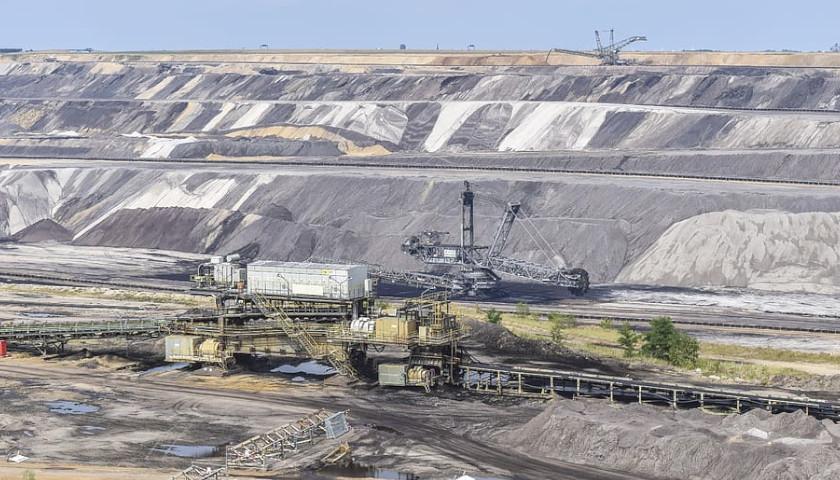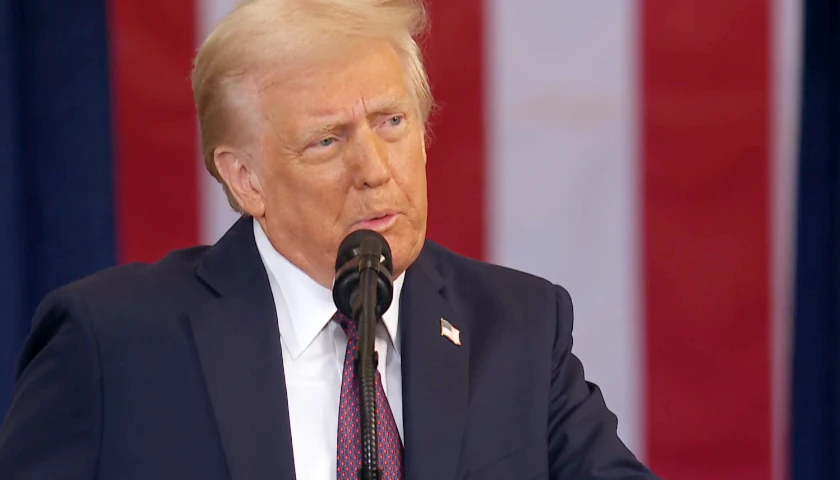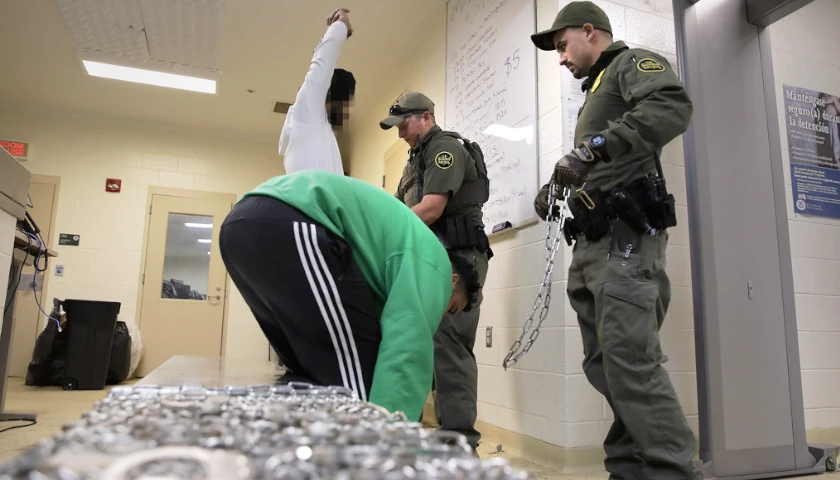by Nick Pope
China is planning to restrict exports of a key mineral needed to make weapons while a U.S. company that could be reducing America’s reliance on foreign suppliers is languishing in red tape, energy experts told the Daily Caller News Foundation.
The Chinese government announced on August 15 that it will restrict exports of antimony, a critical mineral that dominates the production of weapons globally and is essential for producing equipment like munitions, night vision goggles and bullets that are essential to national security, according to the Center for Strategic and International Studies (CSIS). Perpetua Resources, an American mining company, has been navigating red tape for years to develop a mine in Valley County, Idaho, that could decrease reliance on the Chinese supply of antimony, but the slow permitting process is getting in the way, energy experts told the DCNF.
It can take years to secure all the necessary approvals and permits to develop a mine like the one Perpetua Resources is trying to operate. One of the key permitting laws in place is the National Environmental Policy Act (NEPA), which also applies to federal land management actions and the construction of certain public infrastructure projects like highways.
 “After six years of planning and early engagement, we began the [NEPA] permitting process in 2016. We are now eight years into NEPA,” a Perpetua Resources spokesperson told the DCNF. The company is hoping to extract antimony from the largest known deposit in the U.S., and Perpetua Resources’ development could also produce millions of ounces of gold as well.
“After six years of planning and early engagement, we began the [NEPA] permitting process in 2016. We are now eight years into NEPA,” a Perpetua Resources spokesperson told the DCNF. The company is hoping to extract antimony from the largest known deposit in the U.S., and Perpetua Resources’ development could also produce millions of ounces of gold as well.
Diana Furchtgott-Roth, director of the Heritage Foundation’s Center for Energy, Climate and Environment, argues that the Perpetua Resources mine poses real environmental considerations that should be addressed, but production in the U.S. is almost certainly cleaner than production that takes place in China. Moreover, depending on China for raw materials needed to produce key defense equipment poses a clear national security risk, Furchtgott-Roth said.
“The United States has the highest environmental standards in the world for its mines, as well as for some other things, too,” Furchtgott-Roth told the DCNF. “It’s a huge national security risk. Given what we’ve seen with Russia cutting off supplies of natural gas to Europe, we know that countries can cut off important supplies to other countries.”
“If the administration wants to pursue policies that push electric vehicles, green energy and other mineral-intensive technologies, it should look to streamline the permitting process across the board rather than selectively pursuing reform for some favored types of development and not for others,” Furchtgott-Roth added.
Steve Coonen, a former Department of Defense (DOD) official who focused on technology exports to China, agreed that relying on China for raw materials needed to produce crucial technologies presents a clear national security risk.
“The United States has all the rare earth elements it needs, not too dissimilar from its energy requirements,” Coonen told the DCNF. “However, Democrats have enchained U.S. industry by prohibiting the extraction of these materials for misplaced and ill-informed ecological reasons at a significant risk to national security and the United States’ long-term economic health.”
China is responsible for just under 50 percent of the world’s antimony production, and it is also the source of 63 percent of the U.S.’ current antimony imports, according to CSIS. The U.S., meanwhile, did not mine any “marketable” antimony in 2023, according to CNBC.
China’s recently announced export restrictions for antimony will take effect on Sept. 15, according to CNBC. To many in the industry, China moving to curb antimony exports would have come as a surprise just a few months ago, so the country’s decision to take action comes across as “quite confrontational in that regard,” Lewis Black, CEO of Canadian mining company Almonty Industries, told the outlet.
In addition to antimony, China has also flexed its muscles by restricting exports of other critical minerals that it dominates globally, like germanium and gallium, since 2023.
“The United States has some of the highest permitting standards in the world, and that’s something to be proud of. But NEPA gets criticism for being inefficient, and much of that criticism is justified,” the Perpetua Resources spokesperson told the DCNF. “When we are talking about minerals we need for America’s national and economic security — not to mention our clean energy future — we need an efficient regulatory process that still maintains robust protections for communities and the environment.”
The company is anticipating that the process — from initial deposit identification to the beginning of mineral extraction from the mine site — will take 18 years, the Perpetua Resources spokesperson told the DCNF. However, the spokesperson added that NEPA has been beneficial for transparency with the public and allowing stakeholder communities to weigh in about the project.
Nevertheless, Perpetua Resources “absolutely supports a commonsense, bipartisan approach to permitting reform” because “good projects should not wither in red tape.”
The antimony curbs may be even more pressing given existing concerns about the strength of America’s defense-industrial base amid wars in the Middle East and Europe, as well as rising tensions with China over Taiwan. Many experts have cautioned that the U.S. is allowing itself to become too dependent on an adversarial China’s mineral supplies at a time when those minerals are playing a much larger role in the American economy, thanks in part to the Biden administration’s massive green energy agenda.
“In the mid-twentieth century, domestic mining accounted for 90 percent of the U.S.’s antimony consumption. Today, the U.S. no longer mines antimony; instead, it relies on China, its chief geopolitical rival, for over 60 percent of its antimony imports,” Quill Robinson, an associate fellow in CSIS’ Energy Security and Climate Change Program, told the DCNF. “Effective China de-risking requires reducing reliance up and down the value chain.”
Independent West Virginia Sen. Joe Manchin and Republican Wyoming Sen. John Barrasso teamed up to introduce a major permitting reform bill in July, designing the package to simplify the regulatory hurdles that major infrastructure and development projects must clear and expedite timelines without totally defanging regulators’ ability to ensure that environmental concerns and considerations are addressed. That bill has not yet come up for a vote in the Senate.
“There are legitimate environmental challenges that need to be mitigated for projects like this,” Arnab Datta, the Institute for Progress’ director of infrastructure policy, told the DCNF. However, government agencies are more strongly incentivized to avoid legal challenges of their reviews from third parties than they are to thoroughly review the more significant environmental concerns, meaning that regulators tend to chew up lots of time on those minor points and ultimately extend the timelines for permitting, Datta explained.
“The uncertainty from permitting and litigation compounds the challenge of reaching production in what’s often a volatile and uncertain market environment for these commodities,” Datta, who also works for Employ America as a managing director of policy implementation, continued. “These companies need a process with certainty and reasonable timelines and also support that helps mitigate the volatility that arises from China’s actions in the market.”
– – –
Nick Pope is a reporter at Daily Caller News Foundation.



